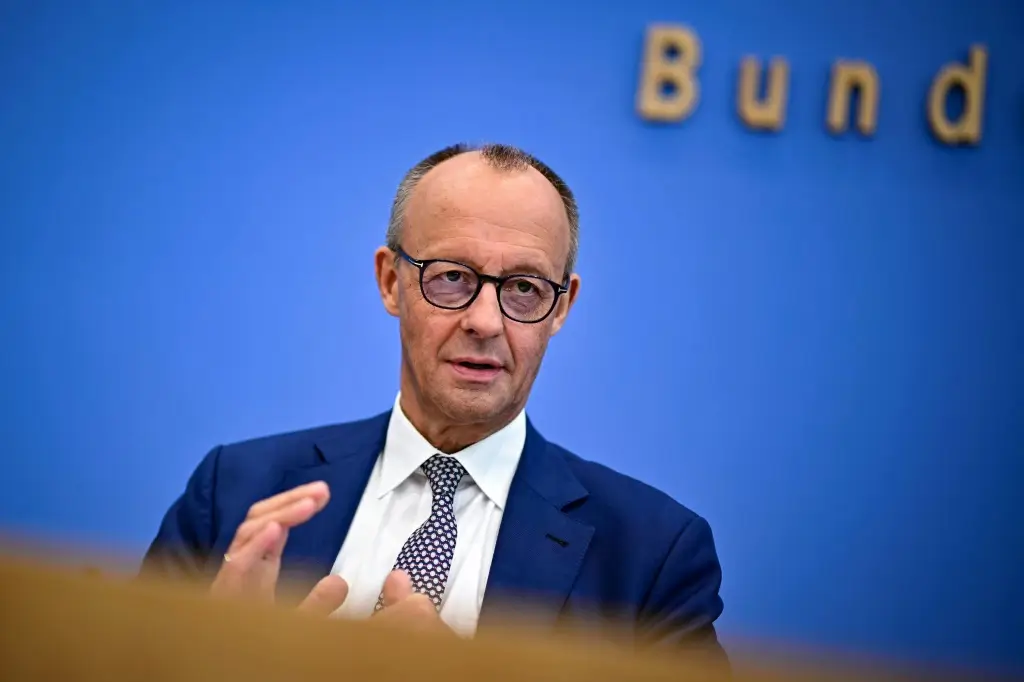
Chancellor Friedrich Merz (CDU) struck a balancing tone in his summer press conference on Friday, addressing a wide range of domestic and international issues. From tightened migration controls to social security reforms and Germany’s global role, Merz emphasized pragmatic solutions for complex challenges facing the country.
Merz defended Germany’s newly tightened migration policies, framing them as necessary but temporary measures to reduce the strain on municipalities and society. “We agree that we must not continue to overburden our cities and communities, which is why we have initiated corrective measures,” he stated. Strengthened border controls implemented under Interior Minister Alexander Dobrindt are already “showing results,” Merz added.
However, he stressed that these measures are not permanent. “What we are currently doing in Germany is only temporary. In the long term, irregular migration can only be resolved jointly within the European Union,” he explained, calling for stronger external EU border protections.
On domestic politics, Merz reaffirmed the CDU-SPD coalition’s commitment to constructive governance despite occasional setbacks. “Highs and successes are just as much a part of a coalition as occasional setbacks. But this government stands on a stable foundation,” Merz insisted, dismissing speculation of political instability. He praised his “good, trusting working relationship” with SPD leader Lars Klingbeil and underscored the coalition’s unity despite differences over key appointments, including the recent postponed election of constitutional judges.
Merz warned Germans to prepare for increasing financial burdens on the country’s social security system due to growing deficits. “The population must realize that greater efforts must be made by all of us to ensure retirement provision, personal health care, and elder care,” he said. While avoiding a direct commitment to benefit cuts, Merz indicated that his government would make initial decisions to reform the system before the end of the year, with expert commissions presenting full proposals by 2027.
On the controversial Bürgergeld (citizen’s income), Merz argued that reforms are needed to prevent abuse and encourage employment. “There are many people in Germany who take advantage of the opportunities offered by our welfare state,” he said, pointing to over five million recipients. He stressed that “those who work should have more left at the end of the month than those who claim transfer payments.” Concrete reform proposals are expected to be discussed after the summer holidays.
Turning to international affairs, Merz described the situation in Gaza as “no longer acceptable.” He urged an immediate ceasefire and emphasized Germany’s insistence on delivering comprehensive humanitarian aid to the region. While maintaining Germany’s historic commitment to Israel’s security, Merz criticized Israel’s settlement policy in the West Bank, stating it “does not meet with the approval of the German government.”
He highlighted the complexity of balancing support for Israel’s right to self-defense with concern for Palestinian civilians. “We are doing everything we can to do justice to both sides,” Merz noted.
Merz also reiterated his controversial stance on Germany’s climate policy, cautioning against an isolated approach. “Even if we were climate-neutral today, nothing would change in the world tomorrow,” he argued, emphasizing that Germany represents only about two percent of global CO2 emissions. Instead, Merz called for investment in innovation and technologies such as CO2 capture to tackle climate change effectively.
Concluding his remarks, Merz expressed satisfaction with his government’s work during its first ten weeks in office and pledged to continue addressing the challenges ahead. “This is not a crisis; it is a situation that could be better,” he said, promising to return from his summer vacation “with the firm intention of continuing what we started.”